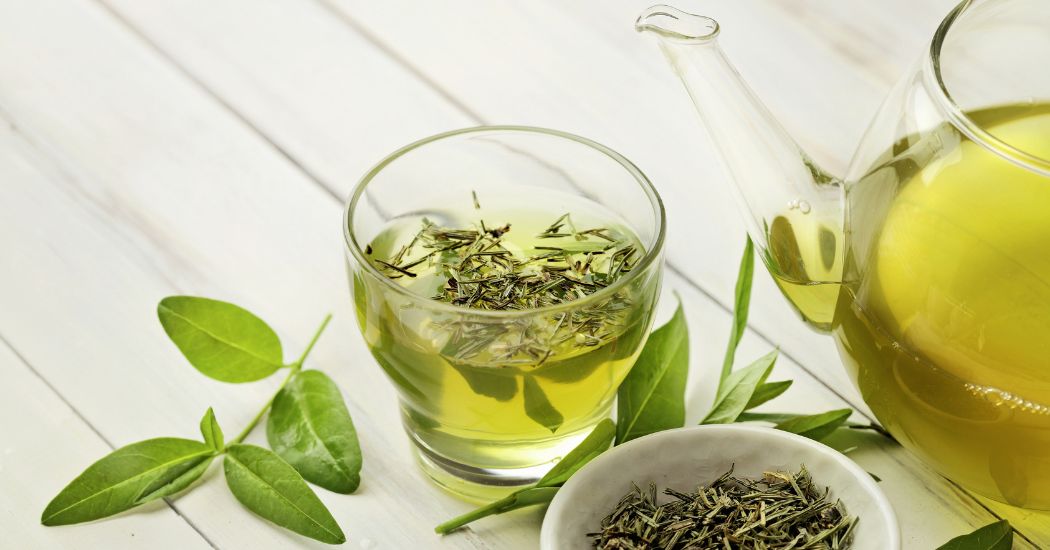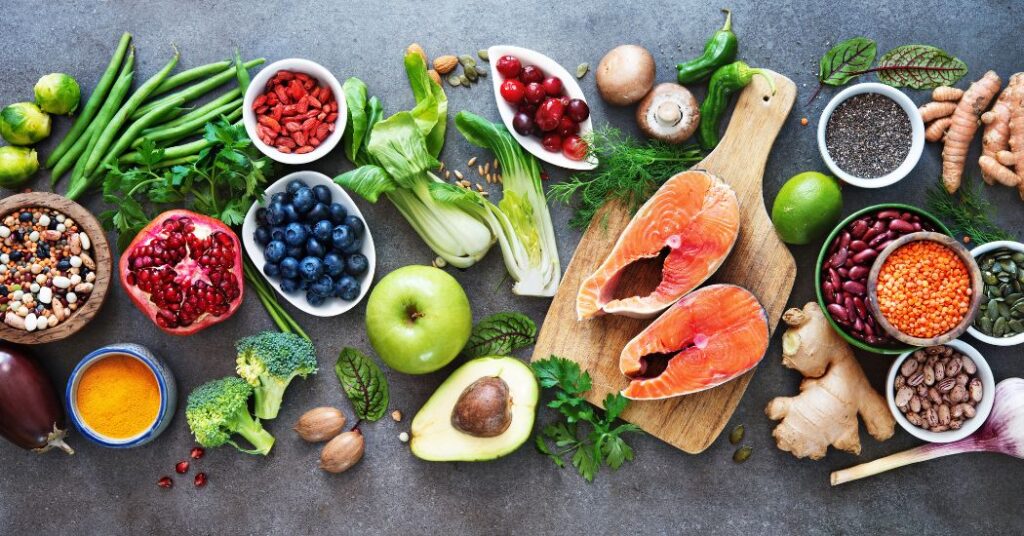Blog
The Superfood for Your Skin
“You are what you eat.” I’m sure that phrase rings a bell. If it doesn’t, don’t take it literally. It doesn’t mean that if you eat a pizza, you’ll be a pizza. Or that you’ll be a broccoli if you eat broccoli. It simply means that in order to be healthy and fit, one must consume a well-balanced diet. For example, if you consume a range of nutritious, life-sustaining, and whole foods on a consistent basis, your body will glow and offer you better feelings. However, if you live on fast food, junk food, or trash, it will undoubtedly impair your physiological organs and cause a variety of physical diseases, as well as have an impact on your mental state. What’s more, what you consume can even affect your complexion! In order to help you out, we’ve compiled a list of superfoods that can help keep your complexion looking healthy and bright!
1. Avocado
Healthy fats are abundant in avocados. These fats aid a variety of bodily functions, including skin health. To keep skin supple and moisturised, it’s critical to consume enough of these fats. A study involving over 700 women discovered that a high consumption of total fat — specifically the types of good fats found in avocados — was related with more elastic, bouncy skin. Besides that, avocados also contain chemicals that may help protect your skin from sun damage, according to preliminary research. UV rays can develop wrinkles and other symptoms of ageing in your skin.

Avocadoes
Avocados are high in vitamin E, an important antioxidant that protects your skin from oxidative damage. Vitamin E appears to be more effective when paired with vitamin C, which is also necessary for good skin. Lucky enough, avocado contains both these antioxidants. Vitamin C is required by your skin to produce collagen, which is the major structural protein that keeps your skin strong and healthy. Although vitamin C deficiency is uncommon these days, frequent symptoms include dry, rough, and scaly skin that bruises readily. Vitamin C is also an antioxidant that protects your skin from oxidative damage produced by the sun and the environment, which can cause ageing symptoms.
2. Citrus
Because of its reviving flavour and nutritional qualities, citrus is one of the most widely consumed fruit commodities worldwide. Oranges, limes, lemons, grapefruits, and mandarin oranges are among the most popular. Vitamin C stimulates collagen formation, which is necessary for smooth skin. It aids in the neutralisation of free radicals, which create wrinkles. It also acts as an exfoliator for scaly skin and enhances skin tone uniformity.

Citrus fruits
A medium-sized orange can provide you with more than 100% of your daily intake for this vitamin. Fruit pairs well with nutritious grains and proteins for breakfast. You can add it to salads and breakfasts, make smoothies with it, or eat it on its own as a healthy snack.
3. Chia Seeds
Salvia hispanica is the plant from which chia seeds come from. These nutritious seeds are quite tiny and dark in colour. They are also beneficial to the skin. High in omega-3 fatty acids, it aids in the production of your skin’s natural oils, resulting in wrinkle-free, moisturised, and supple skin. Since they are abundant in minerals, fibre, and antioxidants, they can help promote healthy skin. Antioxidants combat free radicals, which can cause skin cancer and the ageing process. They also assist to keep your skin looking younger by reducing redness and the effects of sun damage.

Chia seeds
These seeds are simple to integrate into your diet. You can incorporate them into overnight oats or smoothies. This also works well as an egg substitute in cooking and baking. One spoonful of seeds should be soaked in three tablespoons of water for every egg you intend to replace. It quickly transforms into a consistency resembling an egg, which acts as an adhesive to bind your food.
4. Sweet Potatoes
Sweet potatoes are starchy root vegetables that grow beneath the soil’s surface and are high in nutrients. They are members of the morning glory family and can be purple, orange, or white. Sweet potatoes are high in beta-carotene and vitamin E, as well as fibre, which can help maintain healthy blood sugar levels and smooth your skin. Plants contain the vitamin beta carotene. It works as a provitamin A, which means that it can be turned into vitamin A in your body. Oranges and vegetables such as carrots, spinach, and sweet potatoes contain beta carotene. It is listed as a vitamin A food for the skin, which implies it can help treat acne and minimise fine lines and wrinkles.

Sweet potatoes
Sweet potatoes are a great source, with one 1/2-cup (100-gram) serving containing enough beta carotene to supply more than six times the DV of vitamin A. Carotenoids, such as beta carotene, protect your skin by functioning as a natural sunblock. This antioxidant is absorbed into the body through food consumption and helps shield the skin’s cells from UV radiation. This may aid in the prevention of sunburn, cell death, and dry, wrinkled skin. On the sidenote, high levels of beta carotene may also give your complexion a warm, orange hue, contributing to a healthier overall appearance.
5. Fatty Fish
Salmon, mackerel, and herring are three examples of fatty fish that are great for maintaining good skin. They are high in omega-3 fatty acids, which are essential for maintaining skin health. Omega-3 fatty acids are essential for maintaining thick, supple, and moisturised skin. In fact, a lack of omega-3 fatty acids can lead to dry skin. Fish contains omega-3 fats, which help to reduce inflammation, which can cause redness and acne. Even more so, they may lessen how sensitive your skin is to the sun’s UV rays. Inflammatory and autoimmune skin disorders like psoriasis and lupus may be fought with the use of fish oil supplements, according to some studies.

Salmon
Fatty fish also contains vitamin E, which is one of the most vital antioxidants for your skin. Getting adequate vitamin E is critical for protecting your skin from free radicals and inflammation. This type of seafood is also high in protein, which is essential for keeping your skin’s strength and integrity. Finally, fish contains zinc, a mineral that is essential for managing inflammation, overall skin health, and the development of new skin cells. Skin irritation, lesions, and delayed wound healing can all result from a zinc shortage.
6. Broccoli
Broccoli has numerous vitamins and minerals that are beneficial to skin health, including zinc, vitamin A, and vitamin C. Additionally, it has lutein, a pigment that functions similarly to beta carotene. Lutein protects your skin from oxidative damage, which can cause it to dry out and wrinkle. Broccoli florets, on the other hand, contain a unique component known as sulforaphane, which has some promising prospective advantages. It may potentially have anti-cancer properties, including against certain types of skin cancer.

Broccoli
Sulforaphane is also a potent antioxidant that protects against solar damage. It works in two ways: it neutralises dangerous free radicals and activates other protective systems in your body. Sulforaphane has been shown to protect against UV rays for up to 48 hours in laboratory experiments, reducing the number of skin cells that they damage by as much as 29%. Evidence suggests that sulforaphane may also aid in the maintenance of collagen levels in your skin.
7. Walnuts
Walnuts contain numerous properties that make them an ideal food for healthy complexion. They’re high in essential fatty acids, which are lipids that your body cannot produce on its own. In fact, they contain more omega-3 and omega-6 fatty acids than most other nuts. A diet heavy in omega-6 fats may cause inflammation, especially skin irritation such as psoriasis. Omega-3 fats, on the other hand, reduce inflammation in your body, including your skin. While omega-6 fatty acids are abundant in the Western diet, omega-3 fatty acid sources are scarce. Since walnuts have a favourable ratio of these fatty acids, it may aid in combating the possible inflammatory reaction to too much omega-6.

Walnuts
Furthermore, walnuts include essential nutrients that your skin requires in order to work properly and remain healthy. One ounce (28 grammes) of walnuts provides 8% of the daily value for zinc. Zinc is required for your skin’s barrier to operate correctly. It is also required for wound healing and the fight against germs and inflammation. Walnuts include trace levels of the antioxidants vitamin E and selenium, as well as 4-5 grammes of protein per ounce (28 grams).
8. Green Tea
When compared to other teas, green tea has the highest concentration of polyphenols and antioxidants. With its great nutritional value, it serves to minimise inflammation, redness, and black spots. Green tea may prevent your skin from ageing and damage. Catechins are strong molecules found in green tea that help to boost the health of your skin in a variety of ways. Green tea, like many other antioxidant-rich foods, can help protect your skin from sun damage. One 12-week trial involving 60 women discovered that drinking green tea everyday helped lessen sunburn redness by up to 25%. Green tea also enhanced their skin’s hydration, roughness, thickness, and suppleness.

Green tea
The caffeine content of this tea is rather modest, at about 28 milligrammes per 8-ounce cup, so you can drink it multiple times a day if desired. Simply steep a bag in hot water and enjoy. Green tea is a fantastic choice for healthy skin, but you may want to avoid drinking it with milk because there is some evidence that milk may lessen the antioxidant effects of green tea. Here’s a tip, if you have minor cuts or sunburns that need to be soothed, apply the tea directly to them. Another extra tip, it is used to treat acne, therefore you can apply green tea masks on your face.
9. Tomato
Tomatoes are high in vitamin C and have all of the key carotenoids, including lycopene. The antioxidants beta carotene, lutein, and lycopene have been demonstrated to protect your skin from UV damage. They may also aid in the prevention of wrinkles. Tomatoes are a fantastic diet for keeping healthy skin since they are high in carotenoids. Pair carotenoid-rich meals, such as tomatoes, with a source of fat, such as cheese or olive oil. This is due to the fact that fat improves the absorption of carotenoids.

Tomatoes
10. Dark Chocolate
I’ve only ever personally known one person who dislikes eating chocolates. Instead, she loves eating bitter gourds and could even eat them raw. But if you are like most people I know, here is another reason for you to eat chocolate. The effects of cocoa on your skin are rather remarkable. Participants in one study reported healthier, more moisturised skin after 6-12 weeks of daily consumption of an antioxidant-rich cocoa powder. Additionally, their skin was softer and less scaly, less sensitive to sunburn, and had better blood circulation, which helps your skin absorb more nutrients.

Dark chocolate
In comparison to milk chocolate, dark chocolate includes more superfoods. This kind of chocolate has a cocoa content of between 70% and 85%. It typically lacks the additional sugar, dairy, and cocoa liquor that many other chocolates include, making dark chocolate a healthier option. Flavonols, which shield our skin and cells from free radicals, are abundant in this chocolate along with iron, magnesium, and other nutrients. Your skin looks better and might be shielded from damaging UV rays thanks to dark chocolate. This superfood reduces stress and is safe to consume 30-60 grammes each day.

